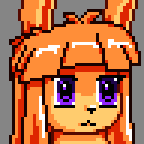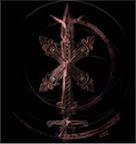A GAME DESIGNER'S MANIFESTO
Posts
Pages:
1
I believe this was either posted or linked here before. If it wasn't, here it is again. This is a 15,000-word document I wrote about a year back on a different site on how to improve the plot and character of your games. People seemed to like it back then. Hopefully those who haven't seen it would find it useful.
TABLE OF CONTENTS
An Introduction / PRELUDE.............................. 3
PART ONE - General Plot Outline........................ 11
PART TWO - A Look at Plot and Conflict................. 18
PART THREE - Cutscenes, Focus, Mood and Theme.......... 28
PART FOUR - Spike-Haired Heroes, One-Winged Villains... 39
PART FIVE - Dealing with Dialogue..................... 45
PART SIX - Creating, Shaping My World Into Something Not Embarrassing........................................... 59
PART SEVEN - A Brief Note on Storylines for Short Games 75
PART EIGHT - Closing Statements....................... 79
I'll just post the introduction here:
"This tiny tome of mine would probably more suit makers of RPG's or games with long storylines, though I will also try to write a little for those who want to write a simple, hour-long game or so. But I want to concentrate more on story-oriented games.
It's no secret that some of you produce some very, very bad story scripts for your games. Story may not always be the element of a game people look most forward to, but I always like to think of it like a knot or a cog. If the knot is loose, if the cog is rusty, there is a great possibility the machinery isn't going to work as well as it can. And within that possibility, the chance lies that your machinery can fall apart.
And we don't want that to happen.
We want to make sure all the little cogs, all the springs, all the nuts, bolts, wires, are all in place and ready to go. That's why I'm writing this â€" to help you prepare yourself to do this. One last thing to keep in mind, I'm not an expert at game scripting. I've never produced anything I have been very proud of, with respect to writing a game's script (that has been turned into a game, anyway) but I do think I know some tricks, some hints, some tips that could at least help you improve a little, help you see your faults.
This guide is split into parts and at the end of each part I will pose a number of questions that you can ask yourself, as well as supplementary material, mostly about literary writing, not game writing, that I thought would be great extra reading material."
You can get it here. http://rpgmaker.net/users/Strangeluv/locker/StrangersTips.doc
TABLE OF CONTENTS
An Introduction / PRELUDE.............................. 3
PART ONE - General Plot Outline........................ 11
PART TWO - A Look at Plot and Conflict................. 18
PART THREE - Cutscenes, Focus, Mood and Theme.......... 28
PART FOUR - Spike-Haired Heroes, One-Winged Villains... 39
PART FIVE - Dealing with Dialogue..................... 45
PART SIX - Creating, Shaping My World Into Something Not Embarrassing........................................... 59
PART SEVEN - A Brief Note on Storylines for Short Games 75
PART EIGHT - Closing Statements....................... 79
I'll just post the introduction here:
"This tiny tome of mine would probably more suit makers of RPG's or games with long storylines, though I will also try to write a little for those who want to write a simple, hour-long game or so. But I want to concentrate more on story-oriented games.
It's no secret that some of you produce some very, very bad story scripts for your games. Story may not always be the element of a game people look most forward to, but I always like to think of it like a knot or a cog. If the knot is loose, if the cog is rusty, there is a great possibility the machinery isn't going to work as well as it can. And within that possibility, the chance lies that your machinery can fall apart.
And we don't want that to happen.
We want to make sure all the little cogs, all the springs, all the nuts, bolts, wires, are all in place and ready to go. That's why I'm writing this â€" to help you prepare yourself to do this. One last thing to keep in mind, I'm not an expert at game scripting. I've never produced anything I have been very proud of, with respect to writing a game's script (that has been turned into a game, anyway) but I do think I know some tricks, some hints, some tips that could at least help you improve a little, help you see your faults.
This guide is split into parts and at the end of each part I will pose a number of questions that you can ask yourself, as well as supplementary material, mostly about literary writing, not game writing, that I thought would be great extra reading material."
You can get it here. http://rpgmaker.net/users/Strangeluv/locker/StrangersTips.doc
I was entirely absent from the community years ago, when Strangeluv's mysterious journey from n00b to guru happened in its entirety.
Anyway, holy SHIT this thing is long.
Anyway, holy SHIT this thing is long.
"No player is interested in a game where there is no conflict, where there is no trouble and just happiness and everyone gets their jollies."
CUMMING SOON: Jollies Rancher II
Definitely agree with the ego thing. As they say, "Hubris is the game killer."
A bit wordy in places, but good information. I see a lot of anecdotes. Any book sources?
CUMMING SOON: Jollies Rancher II
Definitely agree with the ego thing. As they say, "Hubris is the game killer."
A bit wordy in places, but good information. I see a lot of anecdotes. Any book sources?
Yeah I'm usually guilty of being too wordy. Sorry bout that.
Not really any book sources. A lot of the info comes from writing workshops and sitting in on creative writing courses.
Not really any book sources. A lot of the info comes from writing workshops and sitting in on creative writing courses.
That was a very good read. I loved the charts of character archetypes and quirks (I'm a sucker for tables!)
Also the section of dialogue was very nice.
Also the section of dialogue was very nice.
Yeah, totally. I'll find some time to correct a few errors and spruce it up a little before I submit it.
This should be named "A Game Story Writer's Manifesto" as none of these chapters really have Game Design in them. In the book "Game Design: Secrets of the Sages", the story is just one section of that tome.
Don't confuse my reaction though, this is still pretty helpful if you want to have a good story in your game. Some of my favorite games don't really have a story, or have a story to just have a story.
The only time a bad story hurts a game is if it prevents you from playing the game by making you sit through hours of inane boring dialog or scenes.
Don't confuse my reaction though, this is still pretty helpful if you want to have a good story in your game. Some of my favorite games don't really have a story, or have a story to just have a story.
The only time a bad story hurts a game is if it prevents you from playing the game by making you sit through hours of inane boring dialog or scenes.
Yeah you're right about the title. Well, I think I wrote in the introduction that it's mainly for RPG's and games that want to be story-heavy. Other games don't really need a story and could just use imagery/themes to show what they want to tell!
I think most games would be fine if they didn't have l i t t l e m o n e y, ... ... ... ... ... ..., and epically slow custences.
post=150073
I think most games would be fine if they didn't have l i t t l e m o n e y, ... ... ... ... ... ..., and epically slow custences.
OMG freakin FFT! I really despised that part, and every time I started a new game, I dreaded that cutscene.
The irony is that they fixed that slowdown in the PSP remake, but managed to flood the entire battle system with it!
:(
Pages:
1




















